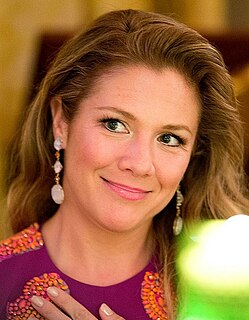Prime Minister's Office may refer to:

A prime minister,premier or chief of cabinet is the head of the cabinet and the leader of the ministers in the executive branch of government, often in a parliamentary or semi-presidential system. Under those systems, a prime minister is not the head of state, but rather the head of government, serving under either a monarch in a democratic constitutional monarchy or under a president in a republican form of government.

The prime minister of Australia is the head of government of the Commonwealth of Australia. The prime minister heads the executive branch of the federal government of Australia and is also accountable to federal parliament under the principles of responsible government. Anthony Albanese of the Labor Party became prime minister on 23 May 2022.

The prime minister of Canada is the head of government of Canada. Under the Westminster system, the prime minister governs with the confidence of a majority the elected House of Commons; as such, the prime minister typically sits as a member of Parliament (MP) and leads the largest party or a coalition of parties. As first minister, the prime minister selects ministers to form the Cabinet, and serves as its chair. Constitutionally, the Crown exercises executive power on the advice of the Cabinet, which is collectively responsible to the House of Commons.

The prime minister of the United Kingdom is the head of government of the United Kingdom. The prime minister advises the sovereign on the exercise of much of the royal prerogative, chairs the Cabinet and selects its ministers. As modern prime ministers hold office by virtue of their ability to command the confidence of the House of Commons, they sit as a member of Parliament.

The prime minister of India is the head of government of the Republic of India. Executive authority is vested in the prime minister and their chosen Council of Ministers, though the President of India is the constitutional, nominal, and ceremonial head of state. The prime minister is often the leader of the party or the coalition with a majority in the lower house of the Parliament of India, the Lok Sabha, which is the main legislative body in the Republic of India. The prime minister and their cabinet are at all times responsible to the Lok Sabha.

The prime minister of the Japan is the head of government of Japan. The prime minister chairs the Cabinet of Japan and has the ability to select and dismiss its Ministers of State. The prime minister also serves as the civilian commander-in-chief of the Japan Self Defence Forces and as a sitting member of the House of Representatives. The individual is appointed by the emperor of Japan after being designated by the National Diet and must enjoy the confidence of the lower house and answer to parliament to remain in office.
Ministry may refer to:
Number 10, #10 or variations thereof may refer to:
Yin may refer to:
Chamberlain may refer to:

The spouse of the prime minister of Canada is the wife or husband of the prime minister of Canada. Sophie Grégoire Trudeau is the wife of the 23rd and current prime minister, Justin Trudeau.
Office of the President can refer to:
Cabinet Office may refer to:
Chancellery is the office of the chancellor, sometimes also referred to as the chancery.
A private secretary (PS) is a civil servant in a governmental department or ministry, responsible to a secretary of state or minister; or a public servant in a royal household, responsible to a member of the royal family.

The Prime Minister's Office is the political arm of the staff housed in the Office of the Prime Minister and Privy Council building that supports the role of the prime minister of Canada. Its staff provides provision of policy advice, information gathering, communications, planning, and strategizing. It should not be confused with the Privy Council Office (PCO), which is the top office that controls the Public Service of Canada and is expressly non-partisan. The PMO is concerned with making policy, whereas the PCO is concerned with executing the policy decisions made by the government.
Castile, Castille or Castilla may refer to:
Department of the Prime Minister and Cabinet is a government office in Australia and New Zealand:

The Prime Minister of the Democratic Socialist Republic of Sri Lanka is the head and most senior member of parliament in the cabinet of ministers. It is the second-most powerful position in Sri Lanka's executive branch behind the president, who is the constitutional chief executive. The Cabinet is collectively held accountable to parliament for their policies and actions.
Senior Minister is a political title. It may refer to: